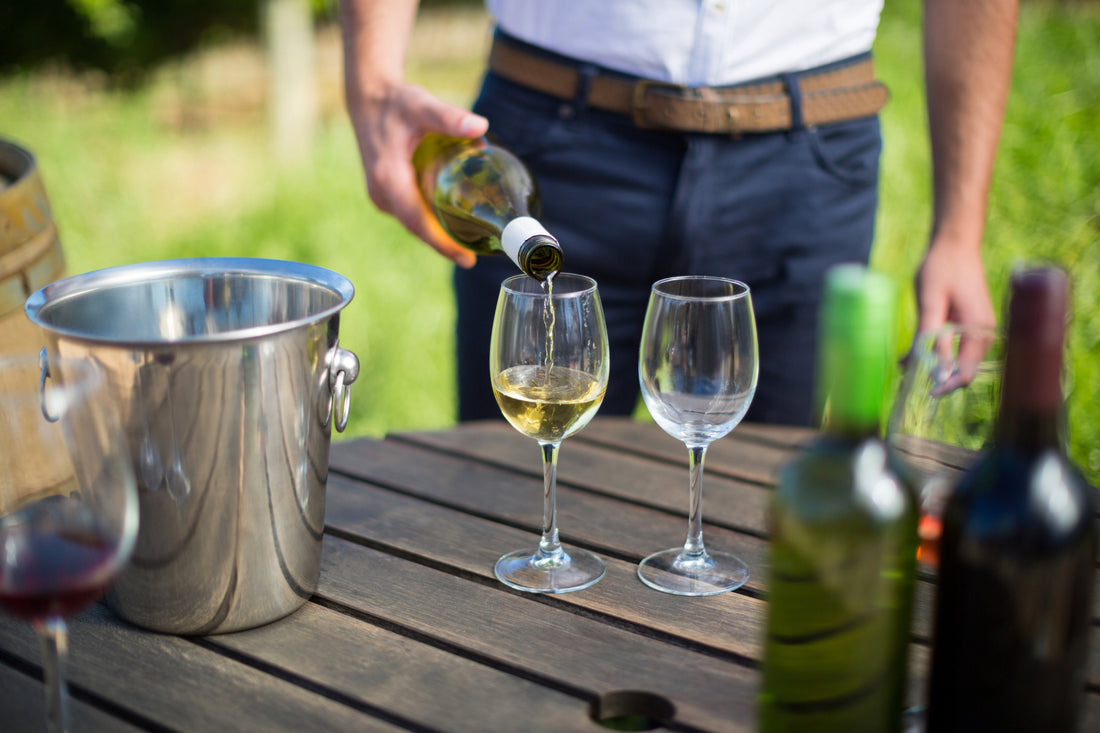
Can White Wine Go Off? Signs Your Bottle Has Gone Bad
Yes, white wine can definitely go bad. Unlike spirits, white wine has a limited shelf life and will eventually spoil if stored improperly or kept too long. Understanding the signs of spoilage can save you from an unpleasant drinking experience and help you get the most out of your wine collection.
White wine enthusiasts know that finding the best white wine requires careful selection, but maintaining its quality is equally important. Whether you prefer a sweet white wine or something crisp and dry, all types of white wine are susceptible to deterioration over time.
Signs Your White Wine Has Spoiled
Detecting spoiled white wine is easier than you might think. Your senses are the best tools for identifying when your bottle has gone off.
Visual Changes
Fresh white wine should maintain its characteristic color, ranging from pale yellow to golden hues depending on the variety. When white wine spoils, you'll notice significant color changes. The wine may become darker, developing brown or amber tints that weren't there originally. Some wines might appear cloudy or develop sediment that settles at the bottom of the bottle.
Off-Putting Smells
A healthy white wine should have pleasant aromas that match its style. Spoiled wine develops distinct unpleasant odors. You might detect smells resembling wet cardboard, vinegar, rotten eggs, or a musty basement. These odors indicate bacterial contamination or oxidation has occurred.
Taste Issues
If your white wine passes the visual and smell tests but still seems questionable, a small taste can confirm its condition. Spoiled wine often tastes sour, overly acidic, or metallic. The pleasant flavors you expect from your favorite white wine varieties will be replaced by harsh, unpalatable tastes.
Unexpected Bubbles
Unless you're drinking sparkling wine, bubbles in your white wine signal fermentation has resumed in the bottle. This secondary fermentation creates carbonation and indicates the wine has gone bad.
What Affects White Wine's Shelf Life
Several factors determine how long your white wine stays fresh and drinkable.
Storage Temperature
Temperature plays a crucial role in wine preservation. Heat accelerates chemical reactions that can make wine go bad more quickly, leading to unpleasant flavors and aromas. Store your white wine at consistent cool temperatures, ideally between 45–65°F. Red wine, on the other hand, typically benefits from slightly warmer storage within that range, but both should be kept away from heat and sunlight.
Light Exposure
Ultraviolet light breaks down compounds in wine, creating unpleasant flavors and aromas. This is why many wine bottles use colored glass for protection. Always store your bottles in a dark place, away from direct sunlight and bright artificial lighting, to maintain their quality.
Different Wine Types Age Differently
Not all white wines have the same lifespan. Light, crisp wines like Pinot Grigio are best consumed within 1-2 years of purchase. Fuller-bodied whites such as Chardonnay can last 2-3 years when properly stored. Premium organic white wine often has better aging potential due to higher quality production methods.
Closure Type Matters
The type of closure affects how long your wine stays fresh. Traditional cork closures allow minimal oxygen exchange, which can be beneficial for aging but also risk cork taint. Screw caps provide excellent seals that keep wine fresh longer, making them ideal for wines meant to be consumed young.
How Many Calories in a Bottle of White Wine
Many wine lovers wonder about the caloric content of their favorite bottles. A standard 750ml bottle of white wine contains approximately 600-700 calories in white wine, though this varies by style and alcohol content. Dry whites typically have fewer calories than sweet varieties. A sweet white wine contains more residual sugar, increasing the calorie count.
Proper Storage Tips for White Wine
Following proper storage guidelines significantly extends your wine's lifespan and maintains its quality.
Temperature Control
Maintain consistent cool temperatures in your storage area to ensure your wine can last as long as possible without losing its quality. Basements, wine refrigerators, or dedicated wine storage units work well. Avoid storing wine in regular refrigerators long-term, as they're too cold and can dry out corks.
Positioning Matters
Store corked bottles on their sides to keep the cork moist and maintain a proper seal. This prevents air from entering the bottle and causing oxidation. Screw-cap bottles can be stored upright without issues.
Avoid Temperature Swings
Dramatic temperature changes cause wine to expand and contract, potentially pushing the cork out or allowing air to seep in. Find a location with stable temperatures year-round.
Consider Humidity
Ideal storage humidity ranges from 50-80%. Too little humidity dries out corks, while excessive moisture can damage labels and encourage mold growth. Maintaining the right humidity helps your wine last longer and preserves its quality.
Making the Most of Your White Wine Collection
Understanding wine spoilage helps you make better purchasing and storage decisions. When you buy white wine, such as Sauvignon Blanc, or champagne online from reputable sources like Box of Wine, you're getting carefully curated selections that have been properly handled and stored. Our wide selection of exclusive wines, sourced directly from vineyards, ensures you start with quality bottles that will age gracefully when stored correctly.
Consider your consumption timeline when building your collection. If you enjoy wine regularly, focus on bottles meant for immediate consumption. For special occasions, invest in higher-quality wines with better aging potential.
Remember that once opened, white wine deteriorates quickly. Consume opened bottles within 3-5 days, storing them in the refrigerator with the original cork or a wine stopper to minimize air exposure.
By recognizing the signs of spoiled wine and following proper storage practices, you'll enjoy your white wine at its peak quality while avoiding disappointing bottles that have gone bad.
For more tips on enjoying your wine at its best, check out our previous article: How Long Does White Wine Last Once Opened?
